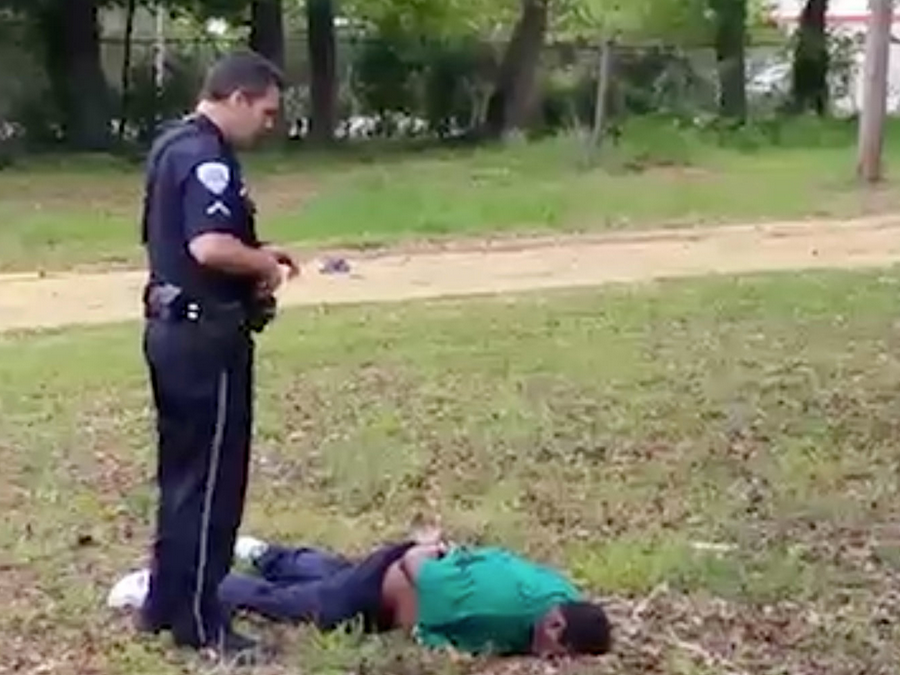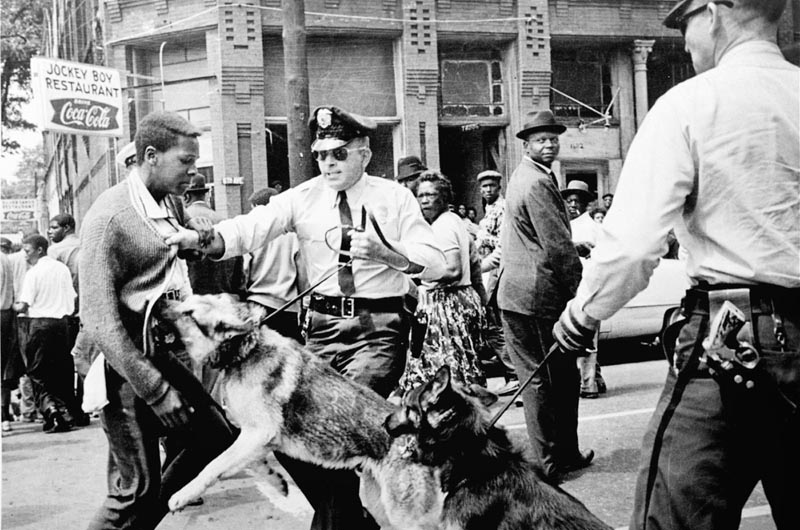It appears that the leader of the Islamic State, Abu Bakr Al-Baghdadi, was poisoned back in September along with three of his aides. He has summoned other leaders to choose his successor as Caliph in case assassins manage to kill him.
If we take a look at history, this is a reflection of the close similarity between the Islamic State and the earliest leaders of Islam. After the death of Mohammad, the Muslims chose a new leader to be their Caliph. The first four such leaders chosen are called by Sunni Muslims the "Rightly Guided Caliphs." These were all companions of Mohammad, who ruled in the years soon after his death.
All of them, Mohammad and his Companions, were men of conquest. Mohammad said that he earned his living from "under the shadow of the tip of my spear" and the Islamic State magazine "Dabiq" presents a lengthy discussion of this in issue 4, beginning on page 10. He lived from the spoils of conquest. Though Mohammad was himself poisoned, he did not die of that incident but was weakened by it and died of illness three years later. His first successor, Abu Bakr, also died of illness. The remaining "Rightly Guided Caliphs" died violent deaths.
Umar-Assassinated by a slave after village was attacked
Othman-Assassinated by rebels during war
Ali- Assassinated by a religious extremist who wanted war
The Caliphate of Ali was divided, with a rival Caliph Muawiyah controlling the Levant and Egypt. The next Caliph, Hassan, resigned after making an agreement agreed to allow Muawiyah to reign until his death, with Hassan as his successor. It did not take long for Muawiyah to decide that his own son Yazid should instead be his heir, and he arranged to have Hassan poisoned -by Hassan's own wife.
Hassan's brother and rightful heir Hussein was later killed by the army of the treacherous Yazid at a battle in Karbala in Iraq. He was beheaded by an enemy leader who had agreed to allow him to say prayers, and then cut off his head when he knelt to pray. This event marks the complete rupture between Sunni Muslims (with Yazid), and those who would become Shia Muslims (with Hussein).
Why is this history relevant? Muslims have worked over many centuries to build an Islam that allows for peace and tolerance. Most of them are kind, decent people who want to live that way. There are schools of theology (primarily four for Sunnis an one for Shia) that interpret the Quran and the life of Mohammad in a different light than the Islamic State.
What you see in the Islamic State is a desire to throw away Islam as we know it, modern Islam, and revert back to tribal barbarism. It is not the Islam of your Dentist, or even of most Muslims.
It is the Islam of the Islamic State. It is the Islam of Al-Qaeida. It is the Islam of Saudi Arabia. It is the Islam that we see lived out in the time of the "Rightly Guided" Caliphs. It is the Islam of terror.
Why has this version of Islam come back to the forefront after being dormant so long? It has always been lurking around in the Saudi Peninsula, where it originated. That is the root and the reservoir of violent extremist Islam. A Saudi preacher of this theology, ibn Abdu Al-Wahab, allied with the house of Saud and together they established an Islamic State in the late 18th century much like the one we see in Syria and Iraq today.
 |
| Why would anyone want to poison this guy? |
All of them, Mohammad and his Companions, were men of conquest. Mohammad said that he earned his living from "under the shadow of the tip of my spear" and the Islamic State magazine "Dabiq" presents a lengthy discussion of this in issue 4, beginning on page 10. He lived from the spoils of conquest. Though Mohammad was himself poisoned, he did not die of that incident but was weakened by it and died of illness three years later. His first successor, Abu Bakr, also died of illness. The remaining "Rightly Guided Caliphs" died violent deaths.
Umar-Assassinated by a slave after village was attacked
Othman-Assassinated by rebels during war
Ali- Assassinated by a religious extremist who wanted war
 |
| Mohammad and his grandsons Hassan and Hussein with his companions in better times |
The Caliphate of Ali was divided, with a rival Caliph Muawiyah controlling the Levant and Egypt. The next Caliph, Hassan, resigned after making an agreement agreed to allow Muawiyah to reign until his death, with Hassan as his successor. It did not take long for Muawiyah to decide that his own son Yazid should instead be his heir, and he arranged to have Hassan poisoned -by Hassan's own wife.
Hassan's brother and rightful heir Hussein was later killed by the army of the treacherous Yazid at a battle in Karbala in Iraq. He was beheaded by an enemy leader who had agreed to allow him to say prayers, and then cut off his head when he knelt to pray. This event marks the complete rupture between Sunni Muslims (with Yazid), and those who would become Shia Muslims (with Hussein).
 |
| Death at Karbala |
Why is this history relevant? Muslims have worked over many centuries to build an Islam that allows for peace and tolerance. Most of them are kind, decent people who want to live that way. There are schools of theology (primarily four for Sunnis an one for Shia) that interpret the Quran and the life of Mohammad in a different light than the Islamic State.
What you see in the Islamic State is a desire to throw away Islam as we know it, modern Islam, and revert back to tribal barbarism. It is not the Islam of your Dentist, or even of most Muslims.
 |
| Unless he does this, in which case you are in trouble. |
It is the Islam of the Islamic State. It is the Islam of Al-Qaeida. It is the Islam of Saudi Arabia. It is the Islam that we see lived out in the time of the "Rightly Guided" Caliphs. It is the Islam of terror.
Why has this version of Islam come back to the forefront after being dormant so long? It has always been lurking around in the Saudi Peninsula, where it originated. That is the root and the reservoir of violent extremist Islam. A Saudi preacher of this theology, ibn Abdu Al-Wahab, allied with the house of Saud and together they established an Islamic State in the late 18th century much like the one we see in Syria and Iraq today.
 |
| The First Islamic State - Emirate of Diriyah |
The Wahabi theology lives on and is exported by wealthy Saudis who build Mosques and pay extremist Wahabi preachers with oil money. All around the world, they are slowly spreading this extremism. The genie is out of the bottle. We have already poured fabulous wealth out on the Saudi princes. They have already set up worldwide organizations to promote their beliefs. We have already armed them with the latest and most powerful armaments that their oil money (which came from us) could buy from our factories.
What can we do? We can attack the ideology, and not the many Muslims who don't really believe it and whose belief systems have rejected it. We can quit trying to portray every Muslim as a terrorist. We can give up the stupid comparisons of refugees to skittles. Not every Christian is a Klansman, and not every Muslim is a terrorist. Maybe we could quit pouring weapons into the region? Those weapons almost always seem to end up in the hands of extremists.
We can also share the Gospel with them. We've done a lot of horrible things with our religion (as Christians) over the centuries, but in it's earliest days Christianity was a religion of peace. When we look at the companions of Jesus (the Apostles) we see something very different about them. They were men of peace, not military conquest. They did not kill for their faith, but instead they were killed for their faith.
 |
| Deaths of the Apostles |
It is wrong to suggest that Muslims are a violent people and that Christians are not. That simply isn't the case. Christian nations are just as involved in the blood-letting as Muslim nations. Our corporations have reaped a huge windfall from weapons sales to all sides. Christian nations have made the worst of the good example of the Apostles, and Muslims have made the best of the bad example of the Companions.
But if we are to look for a way out, where do we look? Whether Muslim or Christian, our only hope is Jesus. The answer is not a religion, or a system, but a person -Jesus. His Apostles were different because he changed them. We should be different because he changes us.
But if we are to look for a way out, where do we look? Whether Muslim or Christian, our only hope is Jesus. The answer is not a religion, or a system, but a person -Jesus. His Apostles were different because he changed them. We should be different because he changes us.

















